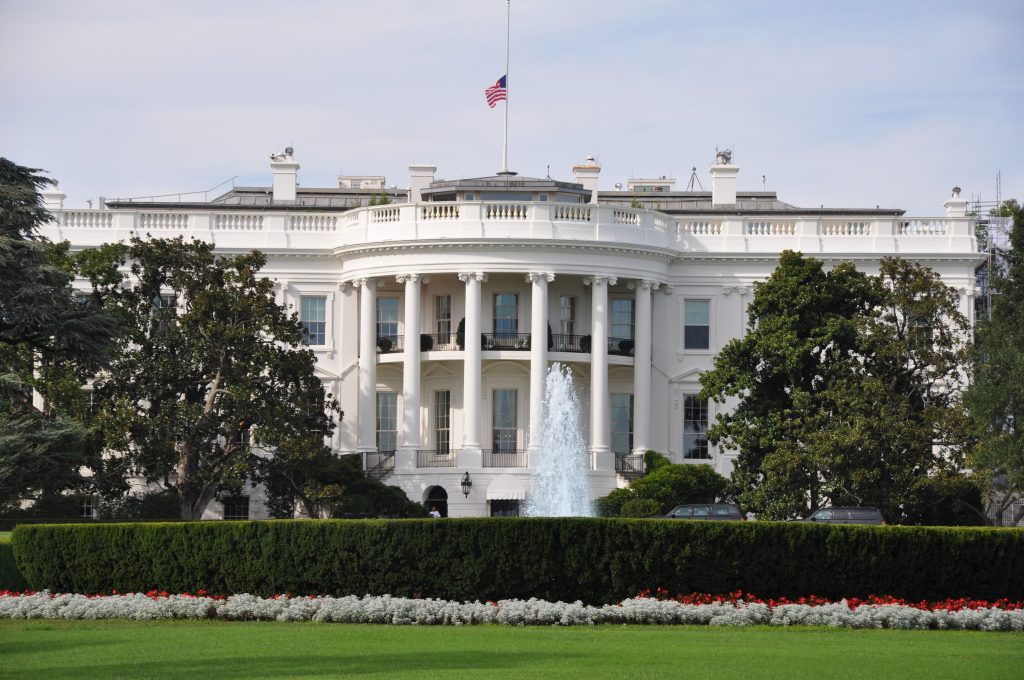In brief
On November 10, 2022, following a 3-1 vote, the Federal Trade Commission (“FTC”) issued a policy statement expanding its interpretation of the scope of unfair methods of competition under section 5 of the Federal Trade Commission Act.1 Commissioner Christine S. Wilson voted against the policy statement and issued an unforgiving 20-page dissent, referring to the policy change as a “radical” departure from the agency’s recent enforcement efforts.2 Commissioner Wilson states that the policy “adopts an ‘I know it when I see it’ approach premised on a list of nefarious-sounding adjectives, many of which have no antitrust or economic meaning.”
Section 5 of the FTC Act prohibits “unfair methods of competition,” which covers conduct that violates antitrust laws or Section 5 itself. It “empower[s]” the FTC to “prevent persons, partnerships, or corporations . . . from using unfair methods of competition in or affecting commerce and unfair or deceptive acts or practices in or affecting commerce.”3
The FTC has recently attempted to broaden its enforcement powers through various avenues. This policy statement is the latest iteration of those efforts. In the FTC’s own words, the statement establishes a “rigorous” enforcement policy of laws banning unfair methods of competition. The FTC stated that it plans to prosecute various areas of conduct, including “incipient violations” of antitrust laws and conduct that violates the “spirit” of antitrust laws.
Key takeaways
- The FTC plans to prosecute and punish far more “unfair” conduct than it ever has before.
- According to the FTC, Section 5 reaches beyond the Sherman and Clayton Acts to encompass various types of unfair conduct that tend to negatively affect competitive conditions.
- New actionable conduct may include “incipient violation[s] of the antitrust laws,” such as acquisitions that have the “tendency to ripen” into actual violations; and conduct that violates the “spirit of antitrust laws,” such as conduct that in the aggregate “may tend to undermine competitive conditions,” and a series of acquisitions “that tend to bring about the harms that the antitrust laws were designed to prevent, but individually may not have violated the antitrust laws.”
Under the FTC’s new policy, even conduct that is not independently actionable, may be actionable in the aggregate, at the FTC’s discretion.
In depth
In July of 2021, the FTC rescinded its 2015 Statement of Enforcement Principles Regarding “Unfair Methods of Competition” under Section 5 of the FTC Act. On November 10, 2022, it issued a new statement, which “supersedes all prior FTC policy statements and advisory guidance on the scope and meaning of unfair methods of competition under Section 5 of the FTC Act.”
The statement explains the FTC’s view of the legislative history of Section 5. It states that Congress clearly intended for the FTC to be able to prosecute “unfair” conduct more broadly than what is allowed for under the Sherman and Clayton Acts. The FTC states that Congress intended for Section 5 of the FTC Act to extend beyond the reach of antitrust laws; Congress wanted to more generally protect society against oppressive anti-competitive conduct. As such, Congress wanted to give the FTC flexibility to adapt to changing circumstances over time. Essentially, the FTC’s position is that its authority extends not only to the letter of antitrust laws, but also the spirit.
The FTC goes on to explain, broadly, what is actionable as an “unfair method of competition.” First, the conduct must be a “method of competition,” meaning that it is conduct undertaken by an actor in the marketplace, which directly or indirectly implicates competition. Second, the method of competition must be “unfair.” Unfair conduct is that which “goes beyond competition on the merits.” The FTC explains that this means the conduct (1) is “coercive, exploitative, collusive, abusive, deceptive, predatory, or involve[s] the use of economic power of a similar nature;” and (2) “tend[s] to negatively affect competitive conditions.” These criteria are evaluated on a sliding scale—where the first is particularly clear, less is required of the second, as an example.
The policy statement identifies some areas of conduct the FTC views as actionable under Section 5. Conduct that satisfies the FTC’s definition of “unfair method of competition” will be analyzed under the “per se” standard, meaning the conduct is automatically considered illegal regardless of any procompetitive justifications. Below are some excerpts of the FTC’s “non-exhaustive” list of conduct that violates Section 5.
- Conduct deemed to be an incipient violation of the antitrust laws. Incipient violations include conduct by respondents who have not gained full-fledged monopoly or market power, or by conduct that has the tendency to ripen into violations of the antitrust laws. Examples include:
- mergers, acquisitions, or joint ventures that have the tendency to ripen into violations of the antitrust laws,
- a series of mergers, acquisitions, or joint ventures that tend to bring about the harms that the antitrust laws were designed to prevent, but individually may not have violated the antitrust laws, and
- loyalty rebates, tying, bundling, and exclusive dealing arrangements that have the tendency to ripen into violations of the antitrust laws by virtue of industry conditions and the respondent’s position within the industry.
- Conduct that violates the spirit of the antitrust laws. This includes conduct that tends to cause potential harm similar to an antitrust violation, but that may or may not be covered by the literal language of the antitrust laws or that may or may not fall into a “gap” in those laws. Examples of such violations include:
- parallel exclusionary conduct that may cause aggregate harm,
- conduct by a respondent that is undertaken with other acts and practices that cumulatively may tend to undermine competitive conditions in the market,
- de facto tying, bundling, exclusive dealing, or loyalty rebates that use market power in one market to entrench that power or impede competition in the same or a related market,
- a series of mergers or acquisitions that tend to bring about the harms that the antitrust laws were designed to prevent, but individually may not have violated the antitrust laws,
- mergers or acquisitions of a potential or nascent competitor that may tend to lessen current or future competition,
- using market power in one market to gain a competitive advantage in an adjacent market by, for example, utilizing technological incompatibilities to negatively impact competition in adjacent markets,
- false or deceptive advertising or marketing that tends to create or maintain market power, or
- discriminatory refusals to deal which tend to create or maintain market power.
According to the FTC, the statement was intended as a guide to the public, business community, and antitrust practitioners by laying out principles defining whether business practices constitute unfair methods of competition under Section 5 of the FTC Act. In reality, however, the statement merely advises the public that the FTC has interpreted Section 5 in a manner that expands the scope of its powers by punishing additional conduct. It does not offer much in the way of practical guidance.
The policy statement has already been widely criticized, including by Commissioner Wilson. In her dissenting statement, Commissioner Wilson points out some of the statement’s practical shortcomings.4 It does not (1) “provide clear guidance to businesses seeking to comply with the law,” (2) “provide a framework that will result in credible enforcement,” or (3) “address the legislative history [of Section 5] that . . . cautions against an expansive approach to enforcing Section 5.”5 Commissioner Wilson argues that the statement “announces that the Commission has the authority summarily to condemn essentially any business conduct it finds distasteful.”6 Chair Khan responded, calling Commissioner Wilson’s concerns “misplaced” because the FTC intends only to enforce the law, and because the policy statement “identifies the framework and factors the Commission will consider when determining whether a business practice constitutes an “unfair method of competition.”7
The U.S. Chamber of Commerce also critiqued the policy statement, referring to it as “a pure political power grab designed to give Chair Khan carte blanche control over when, where, and how companies compete.”8 The Chamber of Commerce went on to say that the “FTC’s decision to reject decades of bipartisan consensus and declare itself the nation’s economic czar will discourage healthy competition and damage America’s competitiveness.” Other organizations—Demand Progress, the American Economic Liberties Project, and the Open Markets Institute—have celebrated the FTC’s move, stating that the FTC will now be better equipped to combat anticompetitive practices.9
In sum, the FTC has further delineated what it perceives to be actionable conduct, as part of its efforts to prosecute any and all types of anticompetitive conduct. The scope of the FTC’s ability to secure judgments against companies under this new Section 5 policy will become clearer over time as companies challenge the FTC’s actions. In the meantime, companies should be particularly mindful of ways in which they can curb anticompetitive conduct and mitigate Section 5 liability, including by conducting antitrust compliance reviews or health checks. Companies can and should consult counsel before engaging in conduct that may fall under the FTC’s expanded interpretation of its enforcement powers. Please reach out to us if we can be of assistance in considering how the FTC’s Section 5 interpretation will affect your company’s antitrust policies and procedures.
1 Fed. Trade Comm’n, Policy Statement regarding The Scope of Unfair Methods of Competition under Section 5 of The Federal Trade Commission Act (2022), https://www.ftc.gov/system/files/ftc_gov/pdf/P221202Section5PolicyStatement.pdf.
2 Comm’r Christine S. Wilson, dissenting statement regarding the “Policy statement regarding the scope of unfair methods of competition under Section 5 of The Federal Trade Commission Act” (2022), https://www.ftc.gov/system/files/ftc_gov/pdf/P221202Section5PolicyWilsonDissentStmt.pdf.
3 15 U.S.C. § 45.
4 Comm’r. Wilson, dissenting statement.
5 Id.
6 Id.
7 Chair Lina M. Khan, joined by Comm’rs Rebecca Kelly Slaughter & Alvaro M. Bedova, statement on the adoption of the statement of Enforcement Policy regarding Unfair Methods of Competition under Section 5 of the FTC Act (2022), https://www.ftc.gov/system/files/ftc_gov/pdf/Section5PolicyStmtKhanSlaughterBedoyaStmt.pdf.
8 Neil Bradley, Federal Trade Commission’s Section 5 Guidance Will Discourage Competition and Damage America’s Competitiveness, U.S. Chamber of Com. (Nov. 10, 2022), https://www.uschamber.com/finance/antitrust/federal-trade-commissions-section-5-guidance-will-discourage-competition-and-damage-americas-competitiveness.
9 See, e.g., Press Release, American Economic Liberties Project, FTC Charges Path Forward to Combat Anticompetitive Behavior Across Markets (Nov. 10, 2022), https://www.economicliberties.us/press-release/ftc-charges-path-forward-to-combat-anticompetitive-behavior-across-markets/; Press Release, Open Markets, Open Markets Applauds the FTC’s New Landmark Policy Statement on Policing Unfair Methods of Competition Policy (Nov. 10, 2022), https://www.openmarketsinstitute.org/publications/open-markets-applauds-the-ftcs-new-landmark-policy-statement-on-policing-unfair-methods-of-competition-policy.










